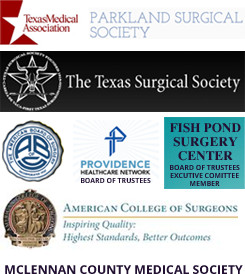Gallbladder Post-Op Instructions
Laparoscopic Cholecystectomy (Gallbladder) Post Op Instructions
These post-operative instructions are provided for our patient’s convenience.
Wound Care
If you have a large white gauze dressing covering your wounds, these may be removed the day following surgery. Underneath will be small white steri-strips or dermabound. These should be left alone. The steri-strips usually fall off by themselves within two weeks of surgery and the dermabound will just disappear. If you have had a SILS procedure your dressing will have a date written on it and you may remove it then. Do not attempt to remove any staples or sutures that are in place until you return to see the doctor. It is not unusual to have firmness underneath the incision. This will gradually disappear in time. You may gently shower the day after surgery. Try not to remove the white steri-strips. You may take a tub bath 7 days after surgery.
Diet
Following your surgery you should gradually increase your dietary intake. Begin with a bland type of diet, such as chicken noodle soup, crackers, Gatorade or tea, and gradually work your way up to a normal diet. Following cholecystectomy, there are no dietary restrictions, but it is a good idea to avoid very greasy or spicy foods for two weeks.
Activity
When you first get home from the hospital, it is important that you get up and move around your house. Walking up stairs is acceptable. For the first week you should avoid any strenuous physical activity. Walking short distances for exercise is acceptable. Do not drive for at least 3-5 days after surgery. You should not drive if you have taken any prescription pain medication within the previous 24 hours. Most patients return to work within 4-7 days. During the second week, you should continue to walk and may do light jogging exercises. Do not lift anything greater than 15-20 lbs. for at least two weeks. Following this two week period, you may gradually increase your activities using common sense. However, you should avoid any physical activity that might make your incision sore – this would include lifting heavy objects, moving furniture, pulling on the lawnmower, etc. These activities should be avoided for four weeks following surgery. You may resume normal sexual activity when you find it comfortable.
Medication
You should resume all your home medications with the exception of aspirin or other anti-coagulants. Aspirin and other anti-coagulants should be discontinued for at least one week following surgery, unless other arrangements have been made with your doctor.
Follow up Visit
Normally the hospital or surgery center will set up your follow up appointment, if not please feel free to call our office. We usually like to see you 3 weeks after your surgery. Please do not leave the Waco area for 1 week following your surgery. That way, should you have any problems, you are close to your surgeon.
Pain Control
Please use the prescription for pain medication given to you at the time of discharge. Be sure to take narcotic pain medication with food so as not to upset your stomach. Should you experience nausea in the post-operative period, this is usually related to pain medication and can be treated by stopping the pain medication and beginning to use over the counter pain relief. Do not drive while you are taking a prescription pain medication.
It is not unusual for people who have had laparoscopic cholecystectomy to experience muscular pain in the region of their puncture wounds under the ribs. This pain can sometimes radiate to the back and can be confused with gallbladder pain in the early post-operative period. This usually resolves after 5-7 days and can be treated with a local heating pad. Patients having had laparoscopic cholecystectomy occasionally experience shoulder pain with is usually due to the carbon dioxide used to inflate your abdomen during surgery. This typically resolves within a few days.
Should you experience a temperature over 101 degrees or have persistent nausea or vomiting or other problems that you think need medical attention, please call us at the office.
Bowel Movements
Some people may have loose stools after meals, but this will usually get better with time. It is not unusual for patients who have had surgery and who are taking narcotic pain medication to become constipated. This should be treated by gradually increasing your activity and drinking a normal amount of water to remain hydrated. A diet high in fiber or dietary fiber supplements (e.g.: Metamucil, Fibercon, Konsyl, Citrucel) may help. In addition, you may obtain Ducolax suppositories or Fleet enemas at the drug store without a prescription and use this once or twice a day. Alternatively, a dose of Milk of Magnesia may be used.
If you have any questions or problems, during normal business hours 8:00am-5:00pm, please call Dr Todd A. Moffatt’s office at (254) 230-1234. If you are having a problem after hours, please call our office and press 2 to leave a message. Someone will return your call promptly.

